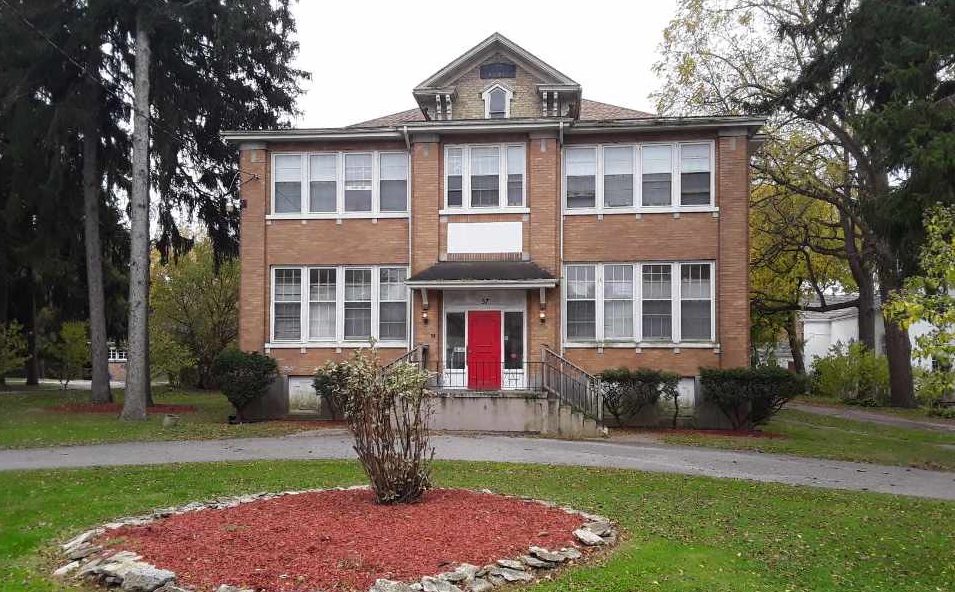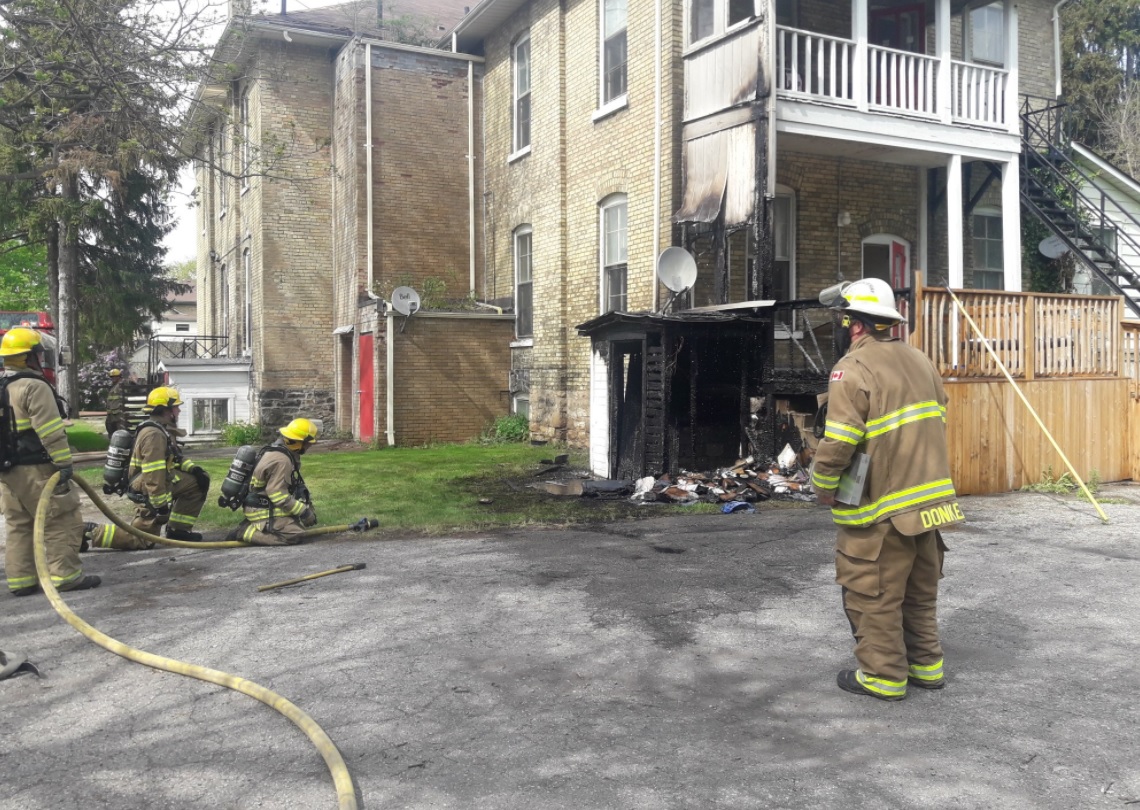A supportive living residence in St. Thomas, Ont., has been ordered to close after multiple, significant public health violations were identified during a recent investigation, Southwestern Public Health announced Wednesday.

The health violations identified at Walnut Manor, located at 57 Walnut St. in the west end of the city, include extensive mold, sanitation issues, bedbugs, and a severe rodent infestation which also led to food contamination, officials said.
As a result of the findings, all 26 of Walnut Manor’s residents have been told to vacate the premises immediately, and the health unit has issued a Section 13 order under the province’s Health Protection and Promotion Act to close the residence, deeming it an unfit and unsafe environment to live in. There are two staff members at the home who also live there, officials say.
“The purpose of the order is to ensure the safety of the residents at Walnut Manor and allow violations to be addressed and remedied quickly with the least impact on human health,” said SWPH’s Peter Heywood during a virtual news conference Wednesday. The order was advised in consultation with local and provincial agencies, the health unit said.

Issues involving the building’s hot and cold water were also found but later fixed. Fire officials say they also identified several fire code violations. The home assists adults who have physical and mental health challenges, the health unit says.
The order will provide the home’s owner and operator an opportunity to become compliant with the act or face potential additional enforcement action, Heywood said. The home is run by Burlington-based SupportiveLiving, led by founder and CEO Vishal Chityal.
The health unit says it’s working closely with community partners in temporarily relocating Walnut Manor’s residents until the issues are addressed. It’s unclear yet how long the relocation will last.
“Our agency realizes the impact of this order, and the impact on the residents in particular, and their their confusion and anxiety and worry related to this move,” said Dan Logie of the Canadian Mental Health Association’s Elgin-Middlesex branch during the news conference.
“We are currently working with the residents (and) with mental health workers, providing assessments, ensuring they have clothing, food, as well as medications where applicable. We’re also assessing for supportive housing placements for them in the community.”
980 CFPL has reached out to SupportiveLiving for comment. According to the company’s website, it is not a provider of care, but provides “affordable room and board in a supervised and structured environment.”

Get weekly health news
It’s homes, it says, are affordable to ODSP clients, and include services such as onsite/on call staff, semi-private and private furnished rooms, and three meals plus refreshments through the day.
It was just over a month and a half ago on May 19 that St. Thomas fire crews responded to Walnut Manor for a working fire at the rear of the property. The blaze was contained to the exterior of the building, and all inside managed to evacuate safely, the fire department said at the time.
It was this incident which “kicked off our look at, and the inspection of, the residence and finding the fire code violations that exists there,” said Kim Destun, chief fire prevention officer, during the news conference. “We then pulled in other agencies, and that’s when public health began also.”
The fire department located several fire code violations, she said, including fire separation doors which failed to close properly, fire safety plan issues relating to staff training, and doors and stairwells not being fire protected. The department last conducted a full inspection of Walnut Manor in 2019, she said.
“They were able to maintain the minimum that we were required, we wrote some very minor orders, but it wasn’t anywhere near the condition that it is now,” Destun said of that inspection.
SWPH says health inspectors visited the premises at least four times last month, as well as on Tuesday of this week, and orders were issued on June 3 and June 23 in response to the problems identified. That was followed by the Section 13 order on Wednesday.
Issues at the site date back well before the fire and the recent inspections. According to the health unit itself, the property has a history of public health violations over a period of several years, remedied through progressive enforcement actions.
“In the past, we have worked with the owner/operator to mitigate those health hazards and to rectify those health hazards, to some success,” Heywood said.
“We’re at a point now, though, where there’s many health hazards present (and) the owner is non-responsive to the education/outreach approach… We’re in a position now where we feel it’s necessary for the well-being and safety of the residents, and those who are working within the residence, to move forward with an enforcement approach that includes a closure order.”
Conditions at the home have been raised at least twice in the Ontario legislature, including once in 2018 by former Welland NDP MPP Cindy Forster, and again in 2020 by her successor NDP MPP Jeff Burch.
In both instances, the politicians spoke of Karen Barry, a southwestern Ontario resident whose late father, Richard, had been a resident of Walnut Manor. Richard had been admitted to the home after suffering a stroke, unable to live by himself without care and unable to qualify for long-term care, Forster said.
“When the food was there, it barely met nutritional requirements. Concerns were raised with the owner and ignored,” Forster said at the time, calling the living conditions “repugnant.”
Forster tabled a private members bill, the Protecting Vulnerable Persons in Supportive Living Accommodation Act, in May 2017, aimed at bringing in a framework for the operation of group homes and establishing minimum standards across Ontario, ensuring standardized care.
The bill, which passed second reading but stalled in the committee stage, was retabled by Burch in 2019, and passed second reading in November 2020. During the debate portion of the second reading, Burch highlighted several of the same issues reported on Wednesday by public health officials.
“In this home, there were bedbugs, garbage piled up for weeks, and shortages of hot water. The basement beneath them was used for food storage but infested with rodents. Frequently, there would be shortages of food, and the list goes on,” Burch said.
“In the words of Karen, ‘He lived in fear and neglect and he paid a significant amount each month to do so. What was supposed to be a supportive living accommodation for him ended up being a nightmare I can’t forget, I don’t think he can either.'”
According to the website of the Ontario legislature, Burch’s bill was in the committee stage as of November.

The issue of unregulated group homes is not an unfamiliar one to Londoners.
In 2014, a fire tore through a group home on Oxford Street East, across from Fanshawe College, resulting in the death of a 72-year-old man, David MacPherson.
The building was used as an unregulated group home, and was operated at the time by Keith Charles through his organization People Helping People.
Charles was found guilty of 12 fire code violations in 2017 in connection with the fire, and was sentenced to 20 days of intermittent jailtime and two years of probation.
The incident led the city to join other municipalities in introducing a bylaw relating to group homes in 2016.
— with files from Jacquelyn LeBel and Liny Lamberink









Comments